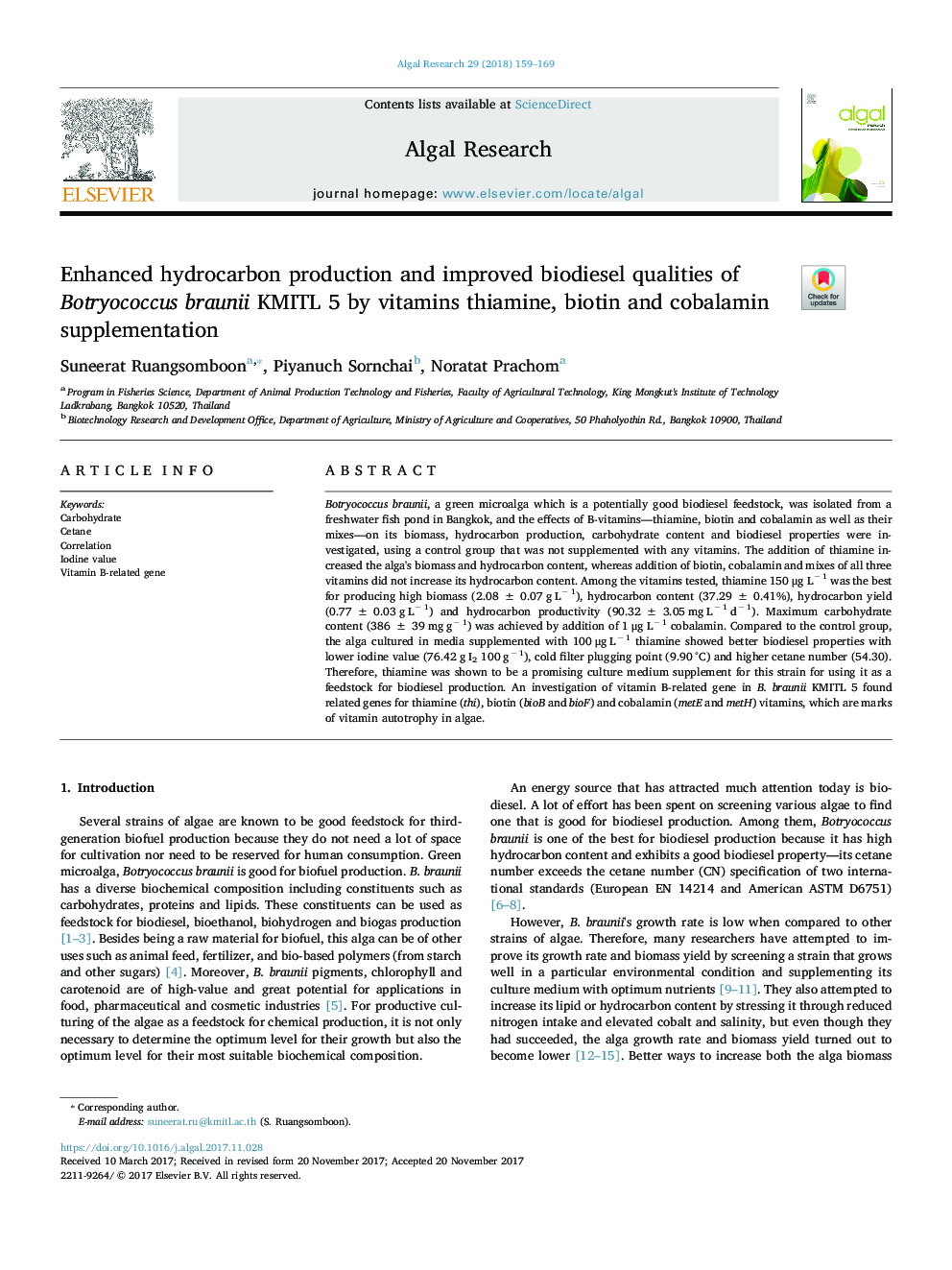| Article ID | Journal | Published Year | Pages | File Type |
|---|---|---|---|---|
| 8086247 | Algal Research | 2018 | 11 Pages |
Abstract
Botryococcus braunii, a green microalga which is a potentially good biodiesel feedstock, was isolated from a freshwater fish pond in Bangkok, and the effects of B-vitamins-thiamine, biotin and cobalamin as well as their mixes-on its biomass, hydrocarbon production, carbohydrate content and biodiesel properties were investigated, using a control group that was not supplemented with any vitamins. The addition of thiamine increased the alga's biomass and hydrocarbon content, whereas addition of biotin, cobalamin and mixes of all three vitamins did not increase its hydrocarbon content. Among the vitamins tested, thiamine 150 μg Lâ 1 was the best for producing high biomass (2.08 ± 0.07 g Lâ 1), hydrocarbon content (37.29 ± 0.41%), hydrocarbon yield (0.77 ± 0.03 g Lâ 1) and hydrocarbon productivity (90.32 ± 3.05 mg Lâ 1 dâ 1). Maximum carbohydrate content (386 ± 39 mg gâ 1) was achieved by addition of 1 μg Lâ 1 cobalamin. Compared to the control group, the alga cultured in media supplemented with 100 μg Lâ 1 thiamine showed better biodiesel properties with lower iodine value (76.42 g I2 100 gâ 1), cold filter plugging point (9.90 °C) and higher cetane number (54.30). Therefore, thiamine was shown to be a promising culture medium supplement for this strain for using it as a feedstock for biodiesel production. An investigation of vitamin B-related gene in B. braunii KMITL 5 found related genes for thiamine (thi), biotin (bioB and bioF) and cobalamin (metE and metH) vitamins, which are marks of vitamin autotrophy in algae.
Related Topics
Physical Sciences and Engineering
Energy
Renewable Energy, Sustainability and the Environment
Authors
Suneerat Ruangsomboon, Piyanuch Sornchai, Noratat Prachom,
